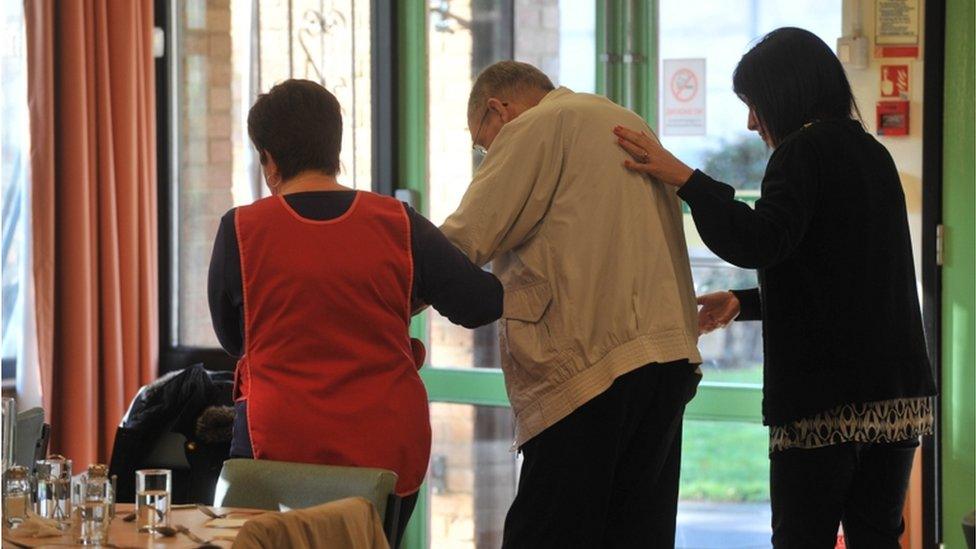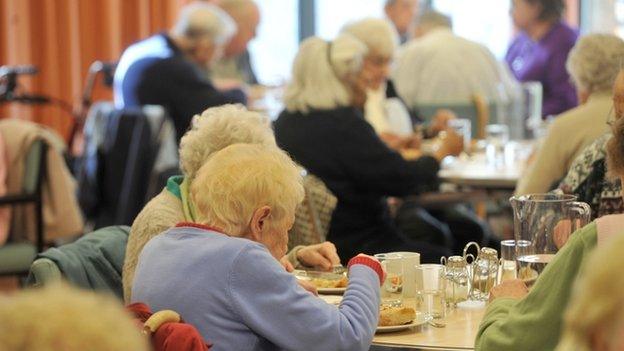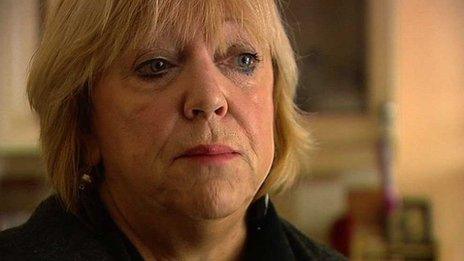Elderly care cost reduction plan shelved
- Published

A decision on reducing the cost of care for elderly people has been shelved, with the Welsh government blaming delays at Westminster.
There are claims it leaves pensioners in limbo and some forced to sell their homes if they need to be looked after.
Health Minister Mark Drakeford was considering a range of policy options, including a cap on the cost of care.
But he said a UK government decision to delay a cap in England left him without the money to pay for a cap in Wales.
The previous UK coalition government pledged to introduce a cap in England so no-one spent more than £72,000 on care during their lifetime.
It was due to come into effect in April 2016, but has since been put off until at least 2020 after local councils said they would face "enormous pressure" from increased demand for care.
Extra UK government funding to deliver the cap would have meant a windfall for the Welsh government to spend as it wished, under the Barnett formula rules on public spending across the UK.
'Reduce the burden'
In a written statement to AMs, Mr Drakeford blamed the lack of funding and uncertainty over UK government welfare reforms.
"The continuation of this situation means that unfortunately I am still not in a position to make informed decisions about reforms I would wish to make to reduce the burden upon citizens in Wales of funding their care and support," he said.
An advisory group found in a favour of a three-year cap on costs for people in residential care - equivalent to around £42,500 for people in a care home without nursing, and £55,000 for those in a home with nursing.
It also recommended lifting the asset threshold at which people are asked to start paying for care from £24,000 to £100,000.
The Department of Health said it was still "firmly committed" to a cap in England, but said it needed to "think carefully" following the response from local councils.
Welsh Liberal Democrat leader Kirsty Williams said: "Crippling care costs need addressing urgently and the Tories' u-turn is a betrayal of people at their most weak and most frail."
- Published17 July 2015

- Published12 May 2014

- Published12 February 2013
- Published25 October 2011
